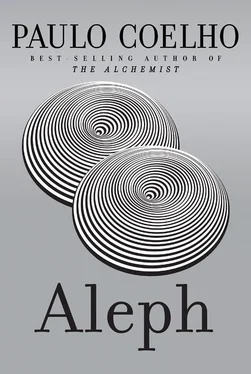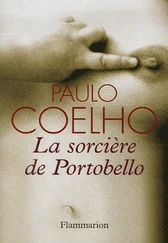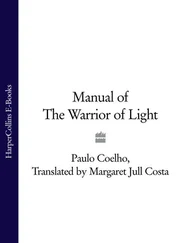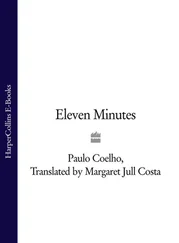“Another plane, another carriage…”
“Exactly. We’re stuck eternally on the same train, until God decides to stop it for reasons known only to Him. But since it’s impossible for us to stay in our own compartment, we walk up and down, from one life to another, as if they were happening in succession. They’re not: I am who I was and who I will be. When I met Hilal outside the hotel in Moscow, she mentioned a story I had written about a fire on the top of a mountain. There is another story about sacred fire, which I will tell you now.
“When the great Rabbi Israel Shem Tov saw that the Jews were being mistreated, he went into the forest, lit a sacred fire, and said a special prayer asking God to protect his people. And God sent him a miracle.
“Later, his disciple Maggid of Mezritch, following in his master’s footsteps, went into the same part of the forest and said, ‘Master of the Universe, I do not know how to light the sacred fire, but I do know the special prayer; please, hear me!’ And the miracle happened again.
A generation passed, and when Rabbi Moshe-leib of Sasov saw how his people were being persecuted, he went into the forest and said, ‘I don’t know how to light the sacred fire, nor do I know the special prayer, but I still remember the place. Help us, O Lord!’ And the Lord helped them.
Fifty years later, Rabbi Israel of Rizhin, in his wheelchair, spoke to God, saying, ‘I don’t know how to light the sacred fire, nor do I know the special prayer, and I can’t even find the place in the forest. All I can do is tell this story and hope that God will hear me.’”
Now it is me who is speaking, not the Divine Energy, but even if I don’t know how to relight the sacred fire, nor even why it was lit, at least I can tell the story.
“Be kind to her,” I say to the others.
Hilal pretends not to have heard. As does everyone else.
WE ARE ALL SOULS wandering the Cosmos and, at the same time, living our lives, but with a sense that we are passing from one incarnation to another. If something touches the code of our soul, it is remembered forever and affects whatever comes afterward.
I gaze lovingly at Hilal, a love that is reflected through time, or what we imagine to be time, as in a mirror. She was never mine and never will be; that is how it is. We are both creators and creatures, but we are also puppets in God’s hands, and there is a line we cannot cross, a line that was drawn for reasons we cannot know. We can approach and even dabble our toes in the river but are forbidden to plunge in and let ourselves be carried along by the current.
I feel grateful to life, first, because it has allowed me to find her again when I needed to. I am finally beginning to accept the idea that I will have to go through that door for a fifth time, even if I still won’t find the answer. I am grateful to life, too, because I was afraid before, but now I am not. And third, I am grateful to life, because I am making this journey.
It amuses me to see that tonight she is jealous. Despite being a brilliant violinist and a warrior in the art of getting what she wants, she is still a child and always will be, as will I and all those who really want the best that life can offer as only a child can.
I will provoke her jealousy, because then she will know what to do when she has to cope with other people’s jealousy. I will accept her unconditional love, because when she loves someone else unconditionally, she will know what she is dealing with.
“SOME PEOPLE CALL IT THE CHICAGO OF SIBERIA.”
The Chicago of Siberia. Such comparisons normally ring very false. Before the Trans-Siberian Railway was built, Novosibirsk had fewer than eight thousand inhabitants. Now the population has risen to more than 1.4 million, thanks to a bridge that allows the railway to continue its steely, steaming onward march to the Pacific Ocean.
Legend has it that the women in Novosibirsk are the prettiest in all Russia. From what I can see, the legend appears to be true, although it would never have occurred to me to compare it with other places I have visited. Hilal, one of the local goddesses, and I are standing before what seems to be a complete anomaly: a gigantic statue of Lenin, the man who made the theory of communism a reality. What could be less romantic than looking at this man whose goatee points to the future but who is incapable of stepping off his plinth and changing the world.
The person who mentioned Chicago was the goddess, an engineer called Tatiana who is about thirty or so, and who, after the party and the supper, decided to accompany us on our walk. Being back on terra firma feels rather like being on another planet. I find it hard to get used to a place that doesn’t move all the time.
“Let’s find a bar where we can have a drink and a dance. We need all the exercise we can get.”
“But we’re tired,” says Hilal.
At such moments, I become the woman I have learned to be and read between the lines. What she means is: “You want to stay with this other woman.”
“If you’re tired, you can go back to the hotel. I’ll stay with Tatiana.”
Hilal changes tack. “There’s something I want to show you.”
“Show it to me, then. There’s no need for us to be alone. After all, we’ve known each other for only ten days.”
This destroys her “I’m with him” pose. Tatiana perks up, although this has less to do with me than with the natural rivalry that sometimes exists between women. She says she’ll be delighted to show me the nightlife in this Chicago of Siberia.
Lenin gazes impassively down on us, as if he has seen it all before. If he had opted for a dictatorship of love instead of wanting to create a paradise for the proletariat, things might have turned out better.
“Come with me, then,” says Hilal.
“ ‘Come with me’?”
Before I can react, Hilal is already striding ahead of us. She wants to turn the tables on us and thus deflect the blow, and Tatiana takes the bait. We set off along the spacious avenue that leads to the bridge.
“Do you know the city, then?” asks the goddess, somewhat surprised.
“That depends on what you mean by ‘know.’ We know everything. When I play the violin, I’m aware of the existence of…”
She searches for the right word, then finds a term that I will understand but that will exclude Tatiana from the conversation.
“I’m aware of a vast, powerful information field around me. It’s not something I can control; rather, it controls me and guides me to the right chord whenever I feel unsure. I don’t need to know the city; I simply have to let it take me where it wants to.”
Hilal is walking faster and faster. To my surprise, Tatiana has understood exactly what Hilal means.
“I love to paint,” she says. “I’m an engineer by profession, but when I stand before a blank canvas, I find that every brushstroke is like a visual meditation, a journey that transports me to a state of happiness I never find in my work and which I hope never to lose.”
Lenin must often have witnessed such scenes before, the encounter of two forces in conflict over a third force that must be maintained or conquered. It doesn’t take very long for those two forces to become allies, leaving the third force forgotten or, quite simply, irrelevant. I am merely the companion of these two young women, who now look as if they have known each other since childhood and are talking animatedly in Russian, oblivious to my existence. It’s still cold—given that we’re in Siberia, it’s probably cold here all year round—but the walk is doing me good; each step raises my spirits, each kilometer is carrying me back to my kingdom. There was a moment in Tunisia when I thought this would never happen, but my wife was right: being alone may make me more vulnerable, but it makes me more open, too.
Читать дальше
